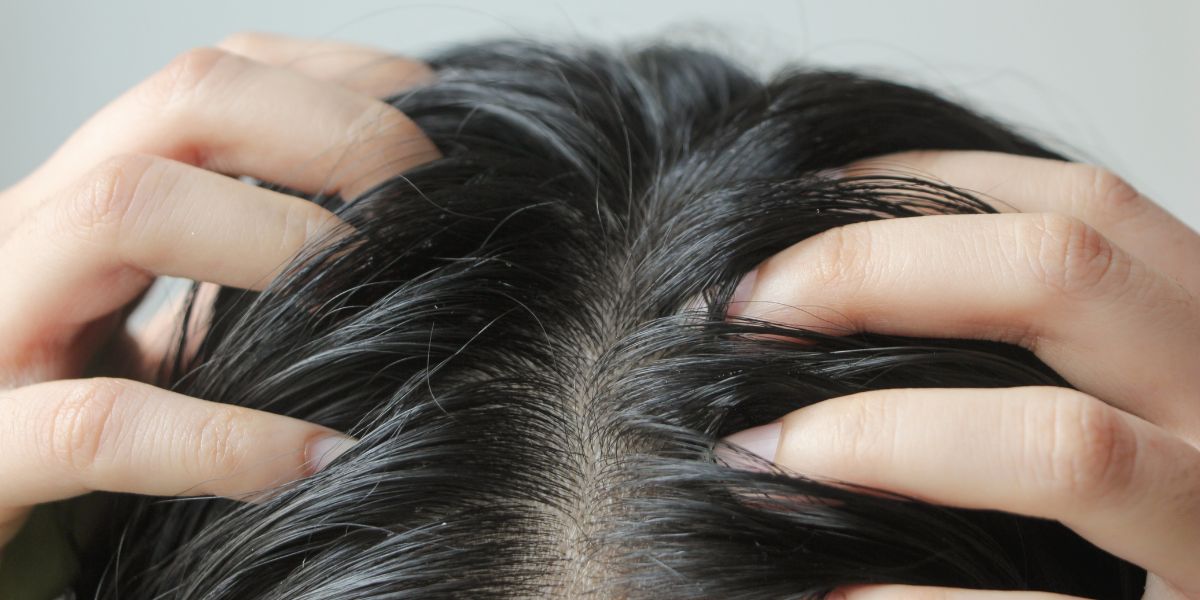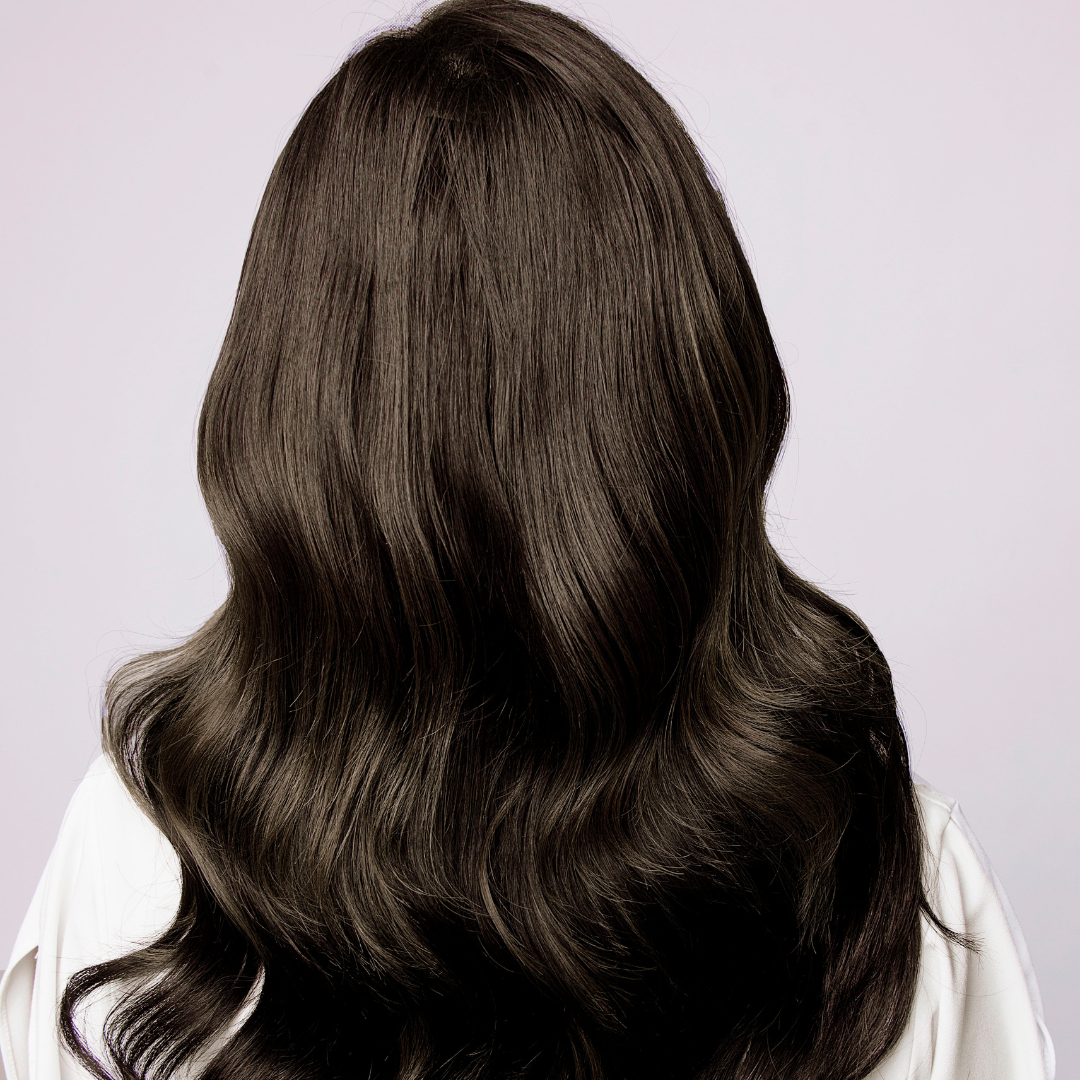If there is one common dream that amongst each woman, then no chance it is other than the desire to have shiny, thick, and long hair. Despite that, hair problem is a very common problem faced by women as well as men. Dry & frizzy hair, hair fall, and split ends are some of the signs of having damaged hair.
Everyone has the desire to have thick hair - for that understanding the science behind the thickness of our hair is vital. Thick and beautiful hair will follow!
What exactly is thick hair?
The thickness of hair refers to the hair's density and the number of hair follicles. Often hair thickness is mistaken for coarse hair. Coarse hair suggests the circumference of each strand of hair.
To sum it up simply, the fullness of your ponytail shows how thick your hair exactly is. The human being's hair is 0.003 to 0.005 thick on average. This is the standard thickness and hence, anything lower is considered to be thin hair and anything above it is classified as thick hair.
If you are looking to get perfect hair, turn away from those pricey hair treatments. The only work they do is drain your wallet and not repair your strands. Instead, it's high time you add some healthy daily habits to your routine.
Following is the list of a few tips that will actually make your hair thicker and healthier.
1. Eat smarter towards good health
What you eat is what you become; this is rightly said. Our body requires adequate nutrients in order to support healthy hair. Diet plays a huge role in the health and growth of your hair. It is extremely essential to add protein-rich food into your daily diet. Non-vegetarians can easily get protein from foods such as eggs, fish, and lean meat. While vegetarians can go for foods like soya, dairy products, and lentils. What you put inside, is what is shown on the outside. Hence, start having food that promotes healthy hair growth. Foods packed with Vitamin-C act in the form of healthy ager for your scalp.
2. Hot Oil Treatment
Women usually put their hair through a lot. Thanks to all the colouring, styling, and heating of their hair. Hence, it becomes extremely important to recover the hair from the damage they undergo. It's high time you pay heed to the advice you have been receiving from your mom and grandmother. As they must have said, hair oiling on a regular basis is very important. Hot oil massage is the best way to pamper your hair. It's the easiest way to strengthen your hair and stop them from being dry and frizzy. A great way for stimulating better blood circulation to your hair, hot oil massage is absolutely essential to have healthy hair. Few essential oils to get thicker hair are Lavender oil, Rosemary oil, Lemongrass oil, Thyme oil, and Clary Sage oil.
3. Set the heat styling on low
This is by far the most important tip of this list. No matter how many hair-care routines you follow, heat styling will end up ruining your hair to a great extent. Your treasured locks undergo a huge amount of damage when they are subjected to heat styling. Heat styling ends up making your hair brittle and weak. Consequently, this affects hair growth and prevents them from looking strong and healthy. Safeguard them before your heat styling sessions with the help of a nourishing heat protection spray. Coldwater improves the circulation of blood and promotes the growth of hair.
4. Coldwater rinse
Every woman is familiar with this tip, yet only a few follow. One of the greatest ways to ensure healthy and lustrous hair is to giving your hair a cold-water rinse. The cold-water rinse ensures the closing of cuticles that opens up during the hair wash. This stops your hair from getting damaged easily. Apart from this, it makes your health a lot shiny, healthy, and frizz-free for a long period of time. Washing our hair with cold water enables us to retain the very important natural sebum and oil in the hair.
5. Trim your hair on a regular basis
Probably the most important yet the most ignored tip, regular trims can end up doing wonders to your hair. It is the cheapest and easiest remedy for hair damage. Those dead, damaged and split ends are your worst enemy. The faster you get rid of them, the better it is for the health of your hair. As per the experts, it is highly recommended to get your hair trimmed after every 6-8 weeks. Not only will it make your hair healthier, but will also ensure that your hair grows at a faster rate. This will lead to improving the quality and thickness of your hair.
The Do's and Don'ts for getting thicker hair
Things to DO
- Massage the scalp each time before washing your hair
- Avoid hairdryers and prefer natural hair drying
- Prevent your hair from getting exposed to hard water and pollution.
- Reduce the stress and take adequate sleep
- Use correct conditioner and shampoo for your hair type
Things NOT TO DO
- Never over wash the hair
- Say no to harsh chemical products
- Pat dry your hair and never rub them with a towel
- Avoid wearing your hair up too tightly
- Never untangle your hair when they're wet
It requires patience and time to grow thicker and fuller hair. So, never be tempted to apply tons of chemical products on your scalp to achieve results quicker. Apart from these, a correct sleeping routine and water intake also play a huge part in the health and growth of hair. Go for natural products over chemical products. They will provide the needed solution to your hair and will also work to provide several other healthy benefits to them.




